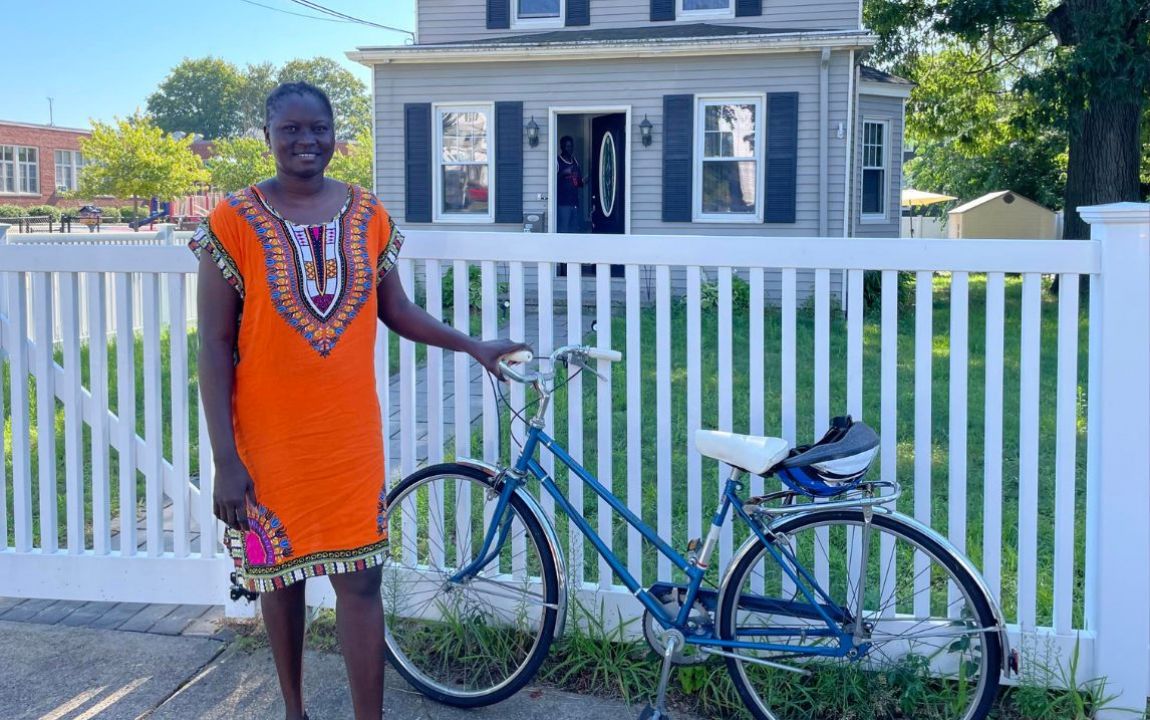A Somali Refugee, Bashir Is Following His Dreams in Boston
Bashir speaks warmly of the culture he grew up in.
“ Somali culture is based on hospitality. They are a joined community—a community connecting each other. They live as a family. Somali culture is based on loving each other, on welcoming people.”
Somali culture is based on hospitality. They are a joined community—a community connecting each other. They live as a family. Somali culture is based on loving each other, on welcoming people.”
Tragically, at sixteen, he had to leave his beloved community in Somalia behind. “I left my country because of the fighting going on,” he explains. “Because of the extremist groups like Al-Shabaab who killed two of my family members in front of me. My family decided to send me to a different country because I might be the next target for these militias.”
In Ethiopia, Bashir would spend years in a refugee camp. While he never lost hope of a chance at a brighter future, day-to-day life was hard.
“You can’t imagine it if you haven’t been there,” says Bashir. “You see people don’t have clean water, don’t have shelter that’s enough for the family—sometimes you see an extended family of ten or more and they’re living in one single room.”
After two years, it looked like Bashir’s chance had arrived when he was officially granted refugee status and the promise of resettlement in the U.S. The year was 2016. Then, a new presidential administration entered the White House and within a week, passed a sweeping ban on immigration by nationals from predominately Muslim countries. The door that had finally opened for Bashir was now shut.
Despite this, Bashir was determined to stay positive. He dedicated himself to working with aid agencies to improve life at the camp. Bashir learned English and became a social worker for the Rehabilitation and Development Organization, which helps people with disabilities, and for the International Rescue Committee, through which he helped to educate community members about the problem of sexual violence. He also worked as a teacher at what he describes as “my own mini school,” helping people of all ages learn how to read and write.
After seven years, the U.S. had again become more welcoming to refugees, and another door opened for Bashir.
“In 2023 I got my dream destination. As a young man, I saw that coming to America would be a door to enter my life dreams of becoming what I want—working in a peaceful environment, rebuilding my life, helping myself and my family.”
Bashir traveled to the U.S. by himself. When he arrived, a team from IINE was there to meet him and to drive him to a hotel room where a warm meal had been prepared for him. After a week, IINE helped Bashir move into a fully furnished apartment.
He was overjoyed to be in his new home, but adjusting took time.
“When you come to an environment that’s different than where you lived your whole life, it’s a shock. I remember when I first came, it was March and Boston was so cold. I came from 70 degrees Fahrenheit, and I came here—it was like 17 or 20— [it was] really hard!”
“Without your family and friends, without the people that you know who have the same culture, it’s not easy,” he says.
With time, Bashir began to find a community. His roommates—three fellow refugees—all came from different countries, but the initial language barriers soon faded away to a blossoming friendship. Bashir recalls hours spent hanging out in their shared living room and kitchen, helping one another adjust. Meanwhile, Bashir was working with IINE on everything from figuring out how to get around Boston, to completing U.S. workforce orientation and applying for jobs.

“Everyone was so nice to me,” he recalls, “my case manager, the site manager, my legal support, everyone was welcoming when I needed to meet with them.”
Today, Bashir enjoys working as a concierge at a residential building, and as an interpreter for an agency that works with schools and hospitals. At IINE, he discovered a passion for coding and set a long-term goal to become a Software Developer. IINE has connected him with a skills training program in which he’s learning front-end development.

Once he became independent enough to make his own living arrangements, Bashir found an apartment in a neighborhood with a sizable community of fellow Somali refugees. He lives near a mosque, plays pick-up soccer, and relishes being part of a Somali community again. It’s a beautiful reunion of sorts, but Bashir says the feeling of acceptance and support he has received in Boston extends far behind his neighborhood.
“The American people—they’re really nice people. I think everybody has a feeling of the meaning of immigrants. These people are really kind and welcoming. Everybody says, Where are you from? and when you tell them, they say, Wow, welcome! and they try to help you.”
Meanwhile, as he works, studies, and enjoys his new life, Bashir is pursuing a few more of his American dreams. He says that over the next two years he’s eager to get his first car, to vote in his first U.S. election, and “to give something back to the American community that has really helped me a lot.”
•••
Refugees and immigrants make long, difficult journeys to escape violence and rebuild their lives in the U.S. You can give them the help they need.
Related Articles

IINE Statement on the Trump Administration’s Termination of TPS for Afghanistan

Tracing Our Roots: IINE Leadership on Their Families’ Journeys to the U.S.
